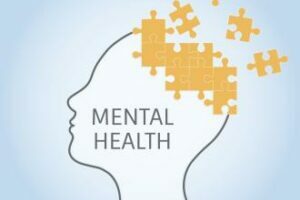From Inside Higher Ed: “The past few years have seen a well-documented rise in reported adolescent and college student distress, and college counseling centers are overwhelmed with the task of providing services. The $64 million question often asked is ‘What is wrong with these students?’
This question is an unfortunate invitation to blame and scapegoat our students. This simplistic thinking falls short of considering the contextual and systematic factors contributing to students’ distress. We look toward them as the problem rather than thinking about how our communities are working together (or not) to create the current challenges.
In what follows, we offer some thoughts about what institutional factors are contributing to students’ suffering. Our perspective is grounded in our experiences as directors of a college counseling center on the front lines of college student mental health and in the developmental model we use in our clinical work with students. The ongoing interaction between clinical work and theory has led us to elaborate a model of college student development that focuses on the importance of being able to be curious about differences, set limits and tolerate disappointments.
While others have noted that the transition to college offers a repetition of our earliest developmental tasks around separating and individuating, our developmental model argues that this time is more than just a replaying of earlier years but rather a chance to focus on the existential aspects of the processes of becoming. For example, college-age students, working to establish a vibrant identity, must contend with the idea that they cannot be everything or all the things that they or loved ones imagined. Like small children who must face the realization they will not have all their needs met all the time, how students come to mourn and accept this has important ramifications for their sense of beingness and the way they occupy space in the world in relationships to others.
Moreover, the context of this process is also different. Unlike the childhood years, when our students were entirely dependent upon their primary caretakers, as late adolescents and young adults, they are now more self-sufficient and agentic. Accordingly, our institutes of higher education are not considered in loco parentis, nor should they be. Our institutional communities, however, do have a responsibility to students. Just as parents play a crucial role in informing how their children navigate moving from being fully dependent to independent subjects, college administrators, faculty and staff members also play an important developmental role in shaping how our students encounter and nurture their evolving sense of self.
In this negotiation and articulation of that role, our college and university communities inadvertently have been participating in the creation of a system ripe for mental distress. Three factors, none of which reflect bad intention or malevolence on our parts as administrators, faculty and staff, come together to create something of a perfect storm: 1) a shift away from value-based education focused on critical thinking and ‘becoming’ toward one promising ‘transformative experiences’; 2) ambivalence around recognizing the systematic and structural factors contributing to trauma, inequity and suffering, including the COVID-19 pandemic; and 3) anxiety about the use of authority, especially when it entails establishing boundaries that define limits of responsibility and establish ways to redress grievances and conflicts.”

***
Back to Around the Web











